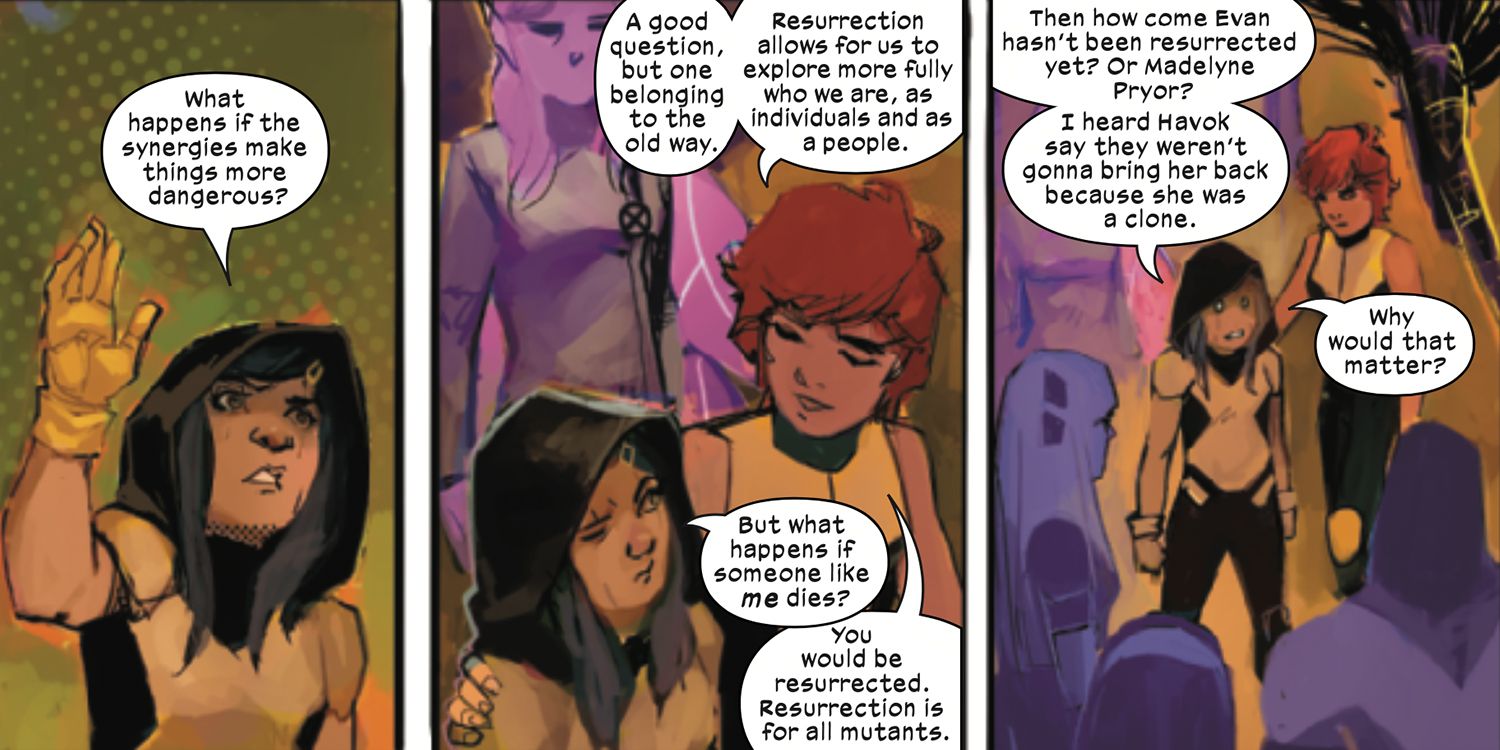
Warning: spoilers for New Mutants #14 are ahead.
Marvel's X-Men are currently in an age of unprecedented opportunity, with the use of resurrection on the mutant haven of Krakoa. Mutants who have long been dead are now able to be brought back to life, reuniting members of the team with their fallen compatriots. And while this feature on Krakoa has certainly benefited the team in a number of ways, it presents a troubling problem for certain members of the team who are clones.
Clones have long been a part of X-Men lore, with Jean Grey double Madelyne Pryor exemplifying the dangers that they can pose. It so happens that one of Wolverine's own children, Gabrielle Kinney, is a clone of his other daughter, X-23 (Laura Kinney). Long thought to be a clone of her father, Laura has been proven to be an artificial daughter instead.
This problem with clones and resurrection on Krakoa came up in New Mutants #14, written by Vita Ayala, with art by Rod Reis, letters by Travis Lanham, and design by Tom Muller. The older mutants on Krakoa, Magik (Ilyana Rasputin), Warpath (James Proudstar), Dani Moonstar, Warlock, and Wolfsbane (Rahne Sinclair) demonstrated the power of synergy for the younger mutants, which involves two or more mutants uniting their power sets for an attack that would otherwise be impossible for them on their own. These feats are dangerous as much as they are impressive, which Gabrielle Kinney was quick to point out.
Asking Rahne about the safety of such a maneuver for someone like her, a clone, Gabrielle was reassured that she had nothing to worry about since resurrection had become such a facet on Krakoa. Still, Gabrielle noted that other clones such as Madelyne Pryor were deemed ineligible for resurrection due to their status as clones, and that even Genesis (Evan Sabahnur) had not yet been resurrected. Gabby was left uneasy even after Magik told her that it is likely that he could "still be in the resurrection queue."

Gabby has become increasingly aware of her unequal status on Krakoa, likely to make her more cautious in her participation in training activities meant for the other mutants. Resurrection has undoubtedly changed the fabric of mutantkind, and it leaves clones like Gabby behind while non-cloned mutants are able to reap the benefits of recent fighting strategies like synergy. It is clear that the X-Men have entered a new age for mutantkind, but it is one that not everyone will be a part of.
The resurrection problem with clones impacts Wolverine especially, considering that Laura is still missing after being sent on a mission to infiltrate the Vault. If Gabrielle were to be killed in a training accident or otherwise, it is unclear as to whether or not she would ever be resurrected, considering that Evan Sabahnur still has not resurfaced. Being left only with the missing Laura would make Wolverine deeply upset.
While on paper, it may seem like the X-Men's policy for resurrection would allow for clones to be resurrected alongside non-cloned mutants, it is clear through the void left behind by Genesis that clones are not prioritized the same way as other mutants. This is one of the many moral and ethical issues that have come up with resurrection in recent X-Men stories, and certainly will not be the last. If X-Men comics have proven anything over the years, it is that mutantkind has grown to be a vastly diverse and complicated body of people, which a one size fits all policy may not adequately account for.
from ScreenRant - Feed https://ift.tt/3pwJ2cK


0 Comments